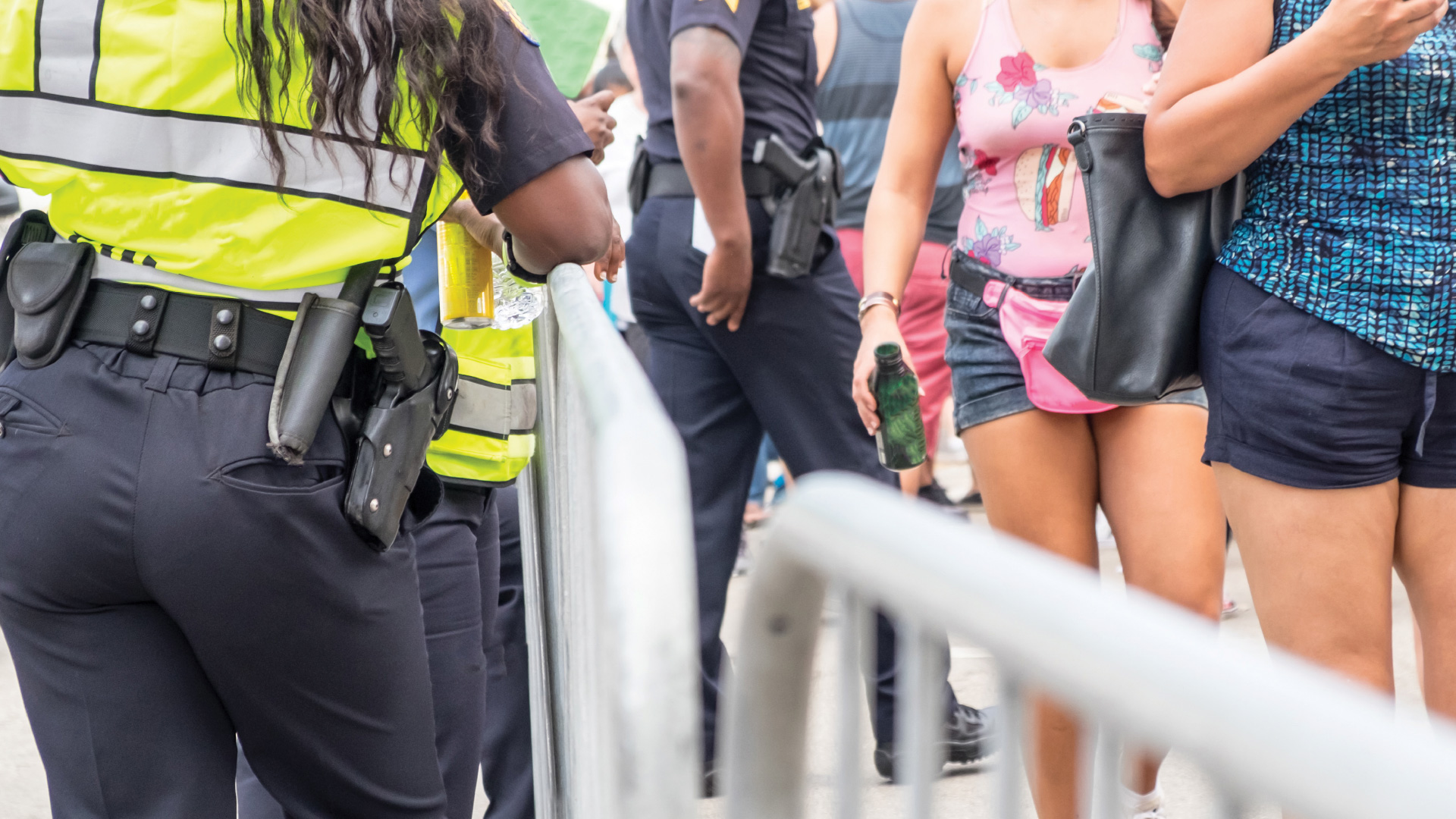
In the face of a global viral pandemic believed to be spread through close personal contact, hosting a gathering of 500 people or more could be called foolish, reckless, dangerous and — in Florida at least — it is, for now, called illegal. On March 29, Pastor Rodney Howard-Browne held Sunday services at The River at Tampa Bay Church, drawing hundreds of people inside.1 By Monday morning, a warrant had been issued for his arrest, charging unlawful assembly and violation of a public health emergency order. The warrant was announced at a press conference led by Hillsborough County Sheriff Chad Chronister and State Attorney Andrew Warren. In their announcement, Warren said, “I think it’s unfortunate that the pastor here is hiding behind the First Amendment.”2
The purpose of this article is not to suggest that gathering en masse is a reasonable act, especially given the dangers of COVID-19; nor do I intend to debate the well-intent of a public heath declaration aimed at stifling its spread. But, where government action carries even the appearance of infringing upon Constitutional protections, law enforcement officers and agency administrators are well served to think critically about the implications attached to their actions long before they are called to implement them. Similarly, particularly when viewed within the post-Ferguson efforts to re-legitimize American policing and advance community trust, the use of police authority to enforce orders about which the public are widely skeptical should be approached with the utmost caution. This is especially true given the conditions necessary for an officer to enjoy qualified immunity — that the official’s conduct does not violate clearly established statutory or constitutional rights of which a reasonable officer would have known.3
In the present example, the potential ramifications of (ostensibly) prohibiting the free exercise of religion and prohibiting an otherwise peaceful assembly — both separately well-established as protected by the First Amendment to the Constitution — should be of tremendous concern to officers at every level of law enforcement.
There is an inherent complexity to utilizing law enforcement officers for the enforcement of “rules” other than explicitly criminal matters. This is with great reason; certainly, any number of articles could be recalled suggesting that the police are overinvolved in attempts to solve an array of societal ills for which they were not intended. The move to criminalize a particular behavior, however noble, brings with it the armed agents of the government tasked with enforcing those prohibitions. This task should thusly never be taken lightly.
Critical to conceptualizing and implementing the law enforcement response to an emergency is a recognition that the suspension of legal review is nearly always temporary. Thus, while a seemingly practical action may be unchallenged in the moment it is undertaken, judicial review is a potential eventuality, even if untimely. Perhaps significantly, as time passes between the emergency and that legal review, the reasonableness of a particular act may fade in the eyes of the reviewer. It is also important to consider that, while states and municipalities are empowered to enact laws and ordinances to establish and enforce laws, especially those protecting the welfare, safety and health of the public, there is nearly no mechanism for preventing the implementation of an unconstitutional law. Assessing the constitutionality of a statute is a task delegated to the judicial branch, and such, a review is typically triggered only by a party seeking redress. Consider, for example: The Official Code of Georgia Annotated §40-1-4 still prohibits knowingly affixing to a motor vehicle any sticker containing profane or lewd words describing “sexual acts, excretory functions, or parts of the human body.”4 This, despite a 1991 Georgia Supreme Court decision which found the statute was unconstitutional and violated both the First and 14th Amendments to the Constitution.5 Officers in every state could similarly locate statutory prohibitions, which are clearly contradicted by the Constitution and by various courts’ interpretations thereof. Thus, officers and administrators are reminded that the mere existence of a statute is not at all correlated with its constitutionality.
This potential conflict between legality and constitutionality is a particularly relevant consideration for agency executives. Chiefs and sheriffs should not be merely carrying out emergency ordinances; they should be an integral part of formulating them. Similarly, police officers at all levels of an agency should be empowered to openly discuss the moral and legal ramifications of a particular ordinance or policy, and supervisors should have clear lines of authority along which they can make recommendations. Significant deliberation must be given to the question of whether specific acts should be criminalized. Because enforcement of those statutes is an eventuality, that decision should center on a clear determination that the police are both necessary and appropriate enforcers of the desired outcome. It is insufficient and imprudent to presume that the threat of legal action, when made by a police officer, will be any more beneficial to achieving a particular outcome than an order given by some other public official.
Finally, procedural methods for the implementation of specific authorities and protocols should be developed well before they are needed. Consider in the present context: was arresting Pastor Howard-Browne and introducing him into a jail facility after he was in close contact with hundreds of other people one day earlier the most prudent course of action? Would a citation or summons have been more appropriate? These sorts of procedural preparations are key to efficiently achieving intended outcomes and to defending the methods by which they were accomplished.
History has not been kind to agency leaders, politicians or even to presidents who stepped outside the constitutionally prescribed mechanisms in an attempt to mitigate even the direst crises. But emergency response is the essence of law enforcement, and law enforcement leaders are among the best suited to craft policies, procedures and even statutes to respond to them in an appropriate — and legal — manner. This is a call for cops to do what we do best: lead and protect.
1 Fox 13 News. (2020, March 30). Tampa megachurch pastor arrested after leading packed services despite ‘safer-at-home’ orders. https://www.fox13news.com/news/tampa-megachurch-pastor-arrested-after-leading-packed-services-despite-safer-at-home-orders
2 Ibid.
3 White v. Pauly, 580 U.S. ___ (2017)
4 O.C.G.A § 40-1-4 (2018).
5 Cunningham v. State, 260 Ga. 827 (1991).
As seen in the May 2020 issue of American Police Beat magazine.
Don’t miss out on another issue today! Click below:





